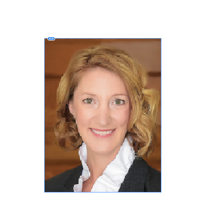Aging and increased complexity – phrasing associated with wine in culinary circles – also describes current challenges for health care. Healthcare workers affected by our aging population and complexities of the system are not just front-line medical personnel, but also the people who handle the technology and paperwork behind the patient-care lines.
National surveys from the Bureau of Labor Statistics point towards rapid, continued growth in healthcare administrators. From information technology to billing to human resources, there is a strong need for people who can handle new technologies while working with an aging population. That technology includes increased use of telehealth, the shift from inpatient to ambulatory care and more complex regulations in the industry.
Nawang Palkit works in human resources (HR) as a medical recruiter for Aspirus St. Luke’s. Palkit focuses on clinic recruitment of people who generally live within 60 miles of Duluth. She scans that local horizon for potential hires in IT, rehabilitation, supervisors, managers and front desk administrators.
“In the Twin Ports, we’re really lucky to have a lot of colleges and community colleges.” She says four- and two-year degrees are important, but she also promotes positions for people who have not yet finished a post-secondary education. That recruitment happens several ways: Through job fairs, on LinkedIn and by word-of-mouth.
One local school that offers a healthy dose of qualified students is the University of Minnesota Duluth. Jennifer Schultz is a professor in UMD’s Department of Economics & Health Care Management. Schultz said the need for qualified workers keeps growing as their “placement rates have always been 99%, three months post-graduation and we have 100% placement internships.”
One of UMD’s most popular internships, according to Schultz, is working alongside a clinic manager. Part of the experience is “to wear multiple hats to manage a whole clinic,” she said. “They learn a great deal about health care by working directly with a clinic manager … including managing people, schedules, appointments and putting out fires every day.”
Beyond internships, Schultz said, “there is a high demand for these jobs, the starting salaries and the increase in salaries over their career with the opportunity to be promoted and develop more skills.”
Palkit noted how times have changed in the medical hiring world. “I used to be someone who would tell a lot of students about the importance of receiving a four-year degree. I think that it’s still important.” But, she explained, employers in health care also are looking for students who have real life experience. “It depends on the individual. Students can be very high achieving with a 4.0 GPA, but if you really look at them, they’ve been mostly focused on studies and really didn’t do work study outside.”
It’s more important than ever for potential hires to achieve a balance between formal education and work experience, Palkit said.
To properly prepare would-be healthcare workers, Schultz feels the need to educate her students about what she called a “complex healthcare system.” An aging population creates more long-term care needs, and she has seen many students graduate to work in nursing homes and assisted-living facilities. “There are so many problems that need to be solved, that there’s a lot of opportunity for students.” She added that UMD offers an entrepreneurship program at the school of business. “They can start a business eventually or a service business. So, I think they see opportunity in learning about the issues that hopefully they can work on.”
Complexities in modern health care are often compounded in rural areas. Due to a workforce shortage, Schultz said, UMD converted its two-year medical program to a four-year program, and “they’re No. 1 or 2 in the country in training physicians to practice in rural areas.”
We’re all aware of how much things changed during and after the pandemic. Clinics were closed and emergency rooms were overwhelmed. As a result, there has been a jump in visits to urgent care, along with telehealth services in recent years.
Health care holds a great deal of importance to people who choose it as a vocation, whether it is at an operating table or figuring out patient billing. According to Schultz, students “are looking for rewarding careers. They’re looking for very purposeful work.” She adds that some were thinking about pre-med, taking classes in chemistry, but then decide they don’t want to practice medicine. “But they want to work in health care and health care management is the perfect space for them.”
Palkit said students looking for a career in health care should take a look at Aspirus St. Luke’s entry level positions. “Some of them are working directly with patients and some are assisting healthcare workers in clinic registration and patient intake assistance. Medical assistant positions are also in high demand, she added, and “they make a huge difference.”
Bick Smith is a writer and small business owner who has worked in radio and TV news
link

